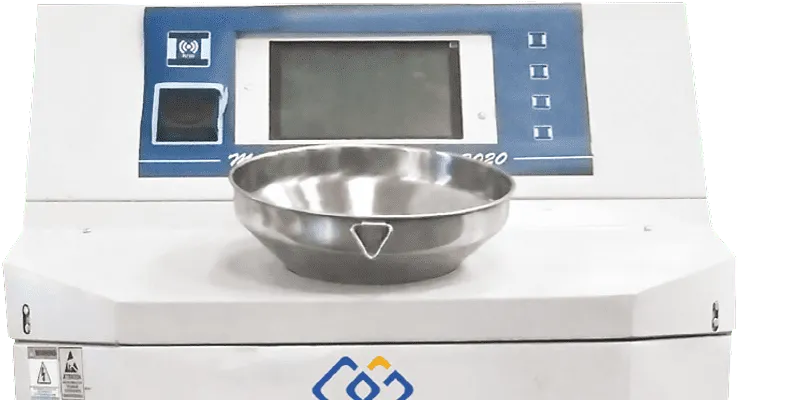World Milk Day: White Gold is betting on automation to address adulteration problem
White Gold Technologies has designed a state-of-the-art, tech-driven solution to address milk collection and adulteration problems. The company believes that the contactless kiosk will work well in the post-coronavirus world.
Got Milk, asked an iconic US campaign 25 years ago. Piyo Glassful Doodh, Amul advised Indians in the late nineties. Time may have elapsed since then but the white, nutrient-rich liquid continues to be the go-to source of nutrition in many households across the world.
It may be a grocery staple, but milk adulteration is a common problem – especially in India. The addition of harmful substances like detergent, neutralisers, and water can lead to health problems.
Mumbai-based is working to resolve the milk adulteration problem with kiosks that test milk quality and set a price that ensures dairy farmers are rewarded fairly.

Ankur Shah, Co-founder and CEO, White Gold Technologies
The company was founded by Ankur Ashwin Shah and his friends, Sandeep Kadam and Suvendu Banerjee, in September 2017 with an initial investment of Rs 100 lakh. The name – White Gold - is derived from the fact that “milk is white and as valuable as gold”.
Ankur previously worked with companies that manufactured dairy equipment. Working with the dairy industry for almost two decades gave him clear insights into the issues the industry faces.
“I realised that the industry needed automation, and we needed to use some physical technology and connect farmers digitally,” he says. This thought led him to start his entrepreneurial journey.
The initial challenges
The initial years of building the business were not easy.
Ankur had the idea, but when he actually met customers and stakeholders he realised that much more effort was needed to get kick-start things.
The process to reduce milk adulteration must start from the time the milk is collected from farmers. Ankur says people in rural areas were skeptical about adopting technology, and convincing them about benefits was a challenge.
For long, India has been testing milk physically. A dairy farmer goes to a milk collection centre and gives the milk sample to a person who weighs and checks the quality of the milk. This leads to inaccurate results at times; the farmer’s payment also gets delayed.
How did White Gold overcome these stumbling blocks?
Ankur says they began by convincing dairy farmers that the kiosk and automated milk collection would benefit them. It would not just help identify the quality of milk, but also help farmers get the right price for their milk and reduce the time lag in payments.
To remove worries regarding technology, Ankur, a product engineer, and his engineering team ensured that the kiosk was made with simple, locally sourced, produced, and available parts. All the kiosks are manufactured in Kalol, Gujarat.
The team organised several proof of concepts with villagers and deployed a person at collection centres where the kiosk was installed. Soon, people started showing interest. Since then, White Gold has installed seven kiosks in Maharashtra and Gujarat.

Robotic Milk Collection Unit (RMCU)
How does the product work?
The working of the milk kiosk, or the Robotic Milk Collection Unit (RMCU), is simple. The farmer stands in front of the machine and flashes his radio frequency identification (RFID) card, which helps the machine recognise the farmer. The farmer then pours milk into a steel utensil fitted on the top surface of the kiosk.
The machine’s in-built technology checks the quality of the milk, including volume, and solids and non-fat (SNF) content. It also checks the density, protein, lactose, added water, and freezing point of the milk. If the quality is acceptable, the milk is automatically poured into a larger container in the kiosk itself; otherwise, it generates an alert and states that the milk has been rejected.
Ankur says, “All data collected from farmers goes into the cloud systems. With in-built artificial intelligence and machine learning technologies, we are able to recognise trends and forecasts related to milk collection.”
For instance, suppose a farmer regularly submits 20 litres of milk and one day brings 40 litres, the machine generates an alert. This allows an investigation to check if the farmer has added milk or any other adulterant to increase the quantity.
The technology will also help in recognising cluster-specific trends when the company expands. With machines installed in rural areas around Gujarat and Mumbai, Ankur says White Gold is eyeing the South India market next.
The company is presently selling these kiosks for Rs 3.50 lakh, but plans a subscription model soon (priced at around 30 paise per litre). A patent is also being filed for the pioneering technology.
White Gold, which clocks a turnover of Rs 1 crore, is also looking to raise funds to ensure that a subscription model can be implemented. The business won an award and a cash prize of Rs 10 lakh in the eliminating milk adulteration category of ‘Startup India- Animal Husbandry Grand Challenge.' The challenge was launched by Prime Minister Narendra Modi in September 2019 during a National Animal Disease Control Programme in Mathura.
The COVID-19 impact
Ankur says White Gold has not faced any major disruption because of the coronavirus pandemic. On the contrary, demand for milk has increased. The only disruption has been increased logistics costs and not being able to give physical demos of the product to customers.
Ankur is betting on automation, which, according to him, will play a significant role in the post COVID-19 era.
“Earlier, automation was limited to MNCs. Now, with decrease in dependence on labour, its role will become greater.”
The kiosk is a good fit for the post COVID-19 world because it offers contactless technology.
Ankur says the product has the potential to be exported abroad, and he is eyeing countries like Bangladesh, Sri Lanka, and Nepal after fulfilling domestic demand.
Edited by Teja Lele









